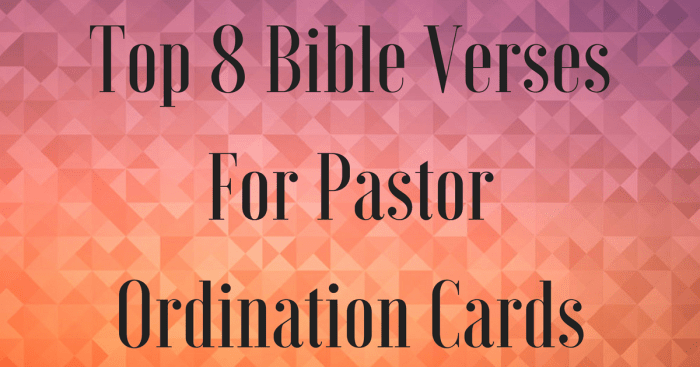Ordination questions and answers for Baptist ministers provide an essential framework for understanding the biblical basis, qualifications, procedures, responsibilities, and ethical considerations surrounding the ordination process within Baptist churches. This comprehensive guide delves into the intricacies of ordination, offering valuable insights for candidates, church leaders, and all those seeking a deeper understanding of this sacred calling.
The content of the second paragraph that provides descriptive and clear information about the topic
Theological Basis for Ordination

The biblical foundation for ordination in Baptist churches is found in the New Testament, particularly in the epistles of Paul and the book of Acts. In 1 Timothy 3:1-13 and Titus 1:5-9, Paul Artikels the qualifications for elders and deacons, who were ordained leaders in the early church.
The Holy Spirit plays a crucial role in the calling and empowering of ministers. In Acts 13:2, the Holy Spirit sets apart Barnabas and Saul for the work of ministry. Similarly, in 1 Corinthians 12:28, Paul lists “governments” (a term often used to refer to ordained leaders) among the gifts of the Holy Spirit.
Key Biblical Passages Related to Ordination
- 1 Timothy 3:1-13
- Titus 1:5-9
- Acts 13:2
- 1 Corinthians 12:28
Qualifications for Ordination

Baptist churches typically have specific qualifications for ordination, based on biblical principles and denominational guidelines.
- Biblical Qualifications:These are found in 1 Timothy 3:1-13 and Titus 1:5-9, and include requirements such as being blameless, self-controlled, hospitable, able to teach, and having a good reputation.
- Denominational Qualifications:These may vary among Baptist denominations, but often include requirements such as having a certain level of education, completing a pastoral training program, and being approved by the church’s leadership.
The process for evaluating candidates for ordination typically involves a thorough examination of their character, spiritual gifts, and educational qualifications.
Character Traits, Spiritual Gifts, and Educational Requirements, Ordination questions and answers for baptist ministers
- Character Traits:Blameless, self-controlled, hospitable, able to teach, having a good reputation.
- Spiritual Gifts:Teaching, leadership, exhortation, evangelism.
- Educational Requirements:May vary depending on denomination, but often include a bachelor’s degree in theology or a related field.
Expert Answers: Ordination Questions And Answers For Baptist Ministers
What are the biblical foundations for ordination in Baptist churches?
Baptist churches believe that the Bible is the sole authority for faith and practice, and that ordination is based on biblical principles. Key passages include Acts 13:1-3, 1 Timothy 3:1-13, and Titus 1:5-9, which Artikel the qualifications and responsibilities of ordained ministers.
What are the qualifications for ordination in Baptist churches?
Baptist churches typically require candidates for ordination to meet certain qualifications, including being a member in good standing of a Baptist church, having a strong personal relationship with Jesus Christ, demonstrating spiritual maturity, possessing a clear call to ministry, and meeting educational requirements.
What are the steps involved in the ordination process in Baptist churches?
The ordination process in Baptist churches typically involves a series of steps, including a candidate’s application, a review by an ordination council, an examination of the candidate’s qualifications, a public examination of the candidate’s faith and calling, and a formal ordination ceremony.
